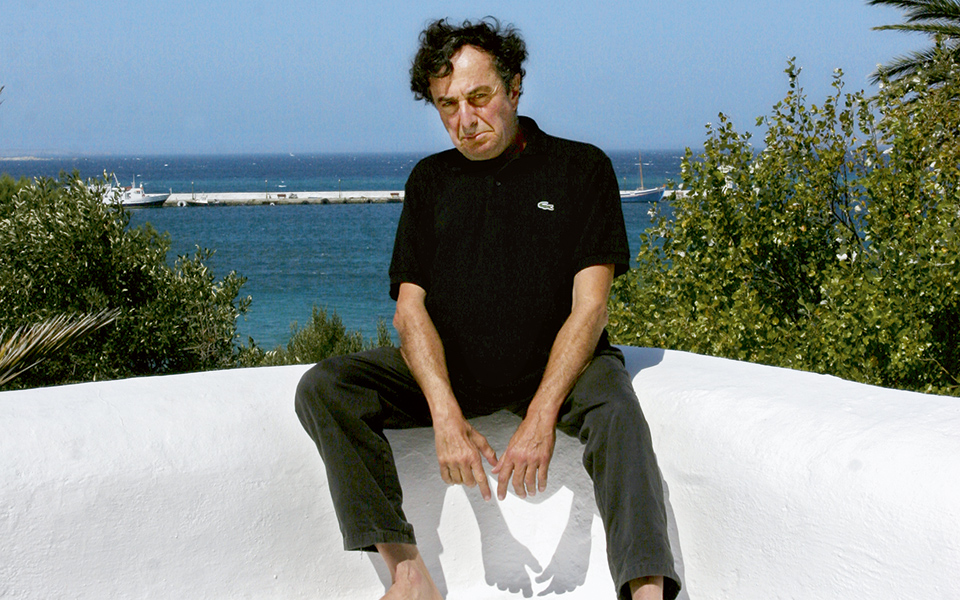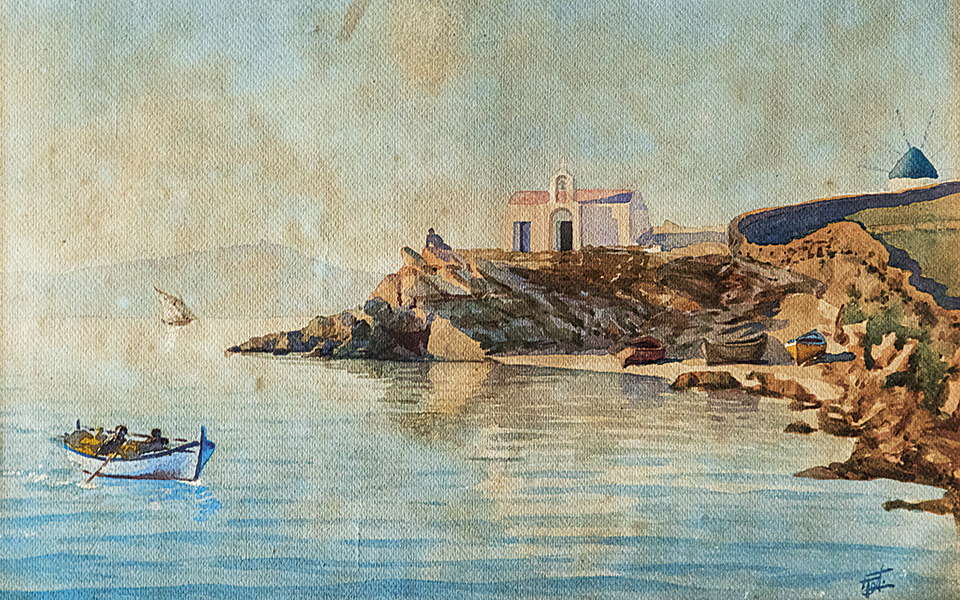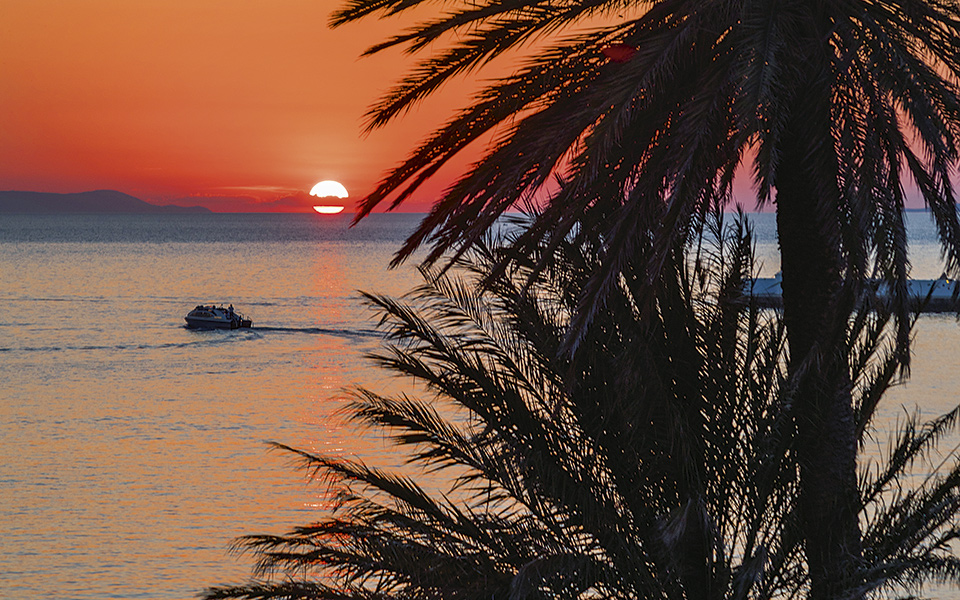I’m not sure whether I’m capable of writing again about Mykonos. Can that light really be written? Can the rapid development of the island be described? My decision to agree to write this short piece presupposes, of course, the reader’s willingness to read it. But to what sort of reader am I addressing myself? Does that recipient really exist? Of a text about light? In a piece I wrote for the newspaper “Ta Nea” in July, 1996, I described a contradiction, an impossiblity: that I was born on Mykonos, though also not born there.
That, in other words, I was reborn on Mykonos, born for the second time, and that I continue to be reborn every time I find myself in the village of Finikia, standing before my mother’s house. The same Finikia I have “sung” – to quote the great Greek poet Kostis Palamas – in my long poem “Shadow” (Ikaros and Indiktos Publications), but also in my new poetic collection “August” (Agra Publications). Finikia is, then, my “passport” for this island which is different, and yet the same. I know the route the sun takes, as seen from the veranda of that house. Its journey traces an arc from right to left along the horizon line.
It begins on July 21 from the promontory of Tinos and on the shortest day of the winter it sets over Diles (Rineia), then starts heading back the other way. That regression of the sun describes my bifurcated, oscillating feelings about the island. On the one hand, admiration. On the other, disgust. In 1996, I wrote that I had written off people from Mykonos, as they had written me off, too, when they saw me hurrying by on the beach of Gialos and confused me with the Veltsos from television. Twenty years later, they no longer confuse me with anything.

© Angelos Christofilopoulos/Fosphotos
Because this sort of confusion can no longer take place. Which is to say, we no longer combine or associate people, things, feelings, or memories, unless they have been given some monetary price. In this sense, the Mykonos of 2017 is more a sort of artificial paradise, without memory or history. This, however, is also the secret of the island’s overdevelopment. This is what has made Mykonos a principality almost independent from the rest of the country. A non-place with no experience of the crisis and the struggles between rich and poor, simply because on Mykonos there is no abject poverty.
And yet if one observes this strange society, one discovers a phenomenon of cultural universalism and capitalism that transforms social relationships, at least as described in the sociology I know. Mykonos could be an example for Baudrillard: the ecstasy of communication, which is to say no communication at all, or a standing outside of communication. The ecstasy of tenderness, therefore no tenderness.The ecstasy of solidarity (omertà), therefore no solidarity (snitching).
In this context, the good intentions of many people from Mykonos isn’t enough to make the island remind us of what it used to be. And the worst of all? To know what’s in store. For the time being, the 10,000 daily tourists from the cruise ships, added to the 40,000 tourists who rent rooms on any given day, create a host of problems which authorities on the island regard with awe.

I know a lot about people from Mykonos. Good things and bad. I even know things they can’t imagine I’m aware of. Well, and what of it? On Mykonos everyone knows everything. Both the transgressions and violations of building regulations and the exploitation of seasonal workers. In this sense, speaking ironically, one could say that on Mykonos one finds a transparent society, as clear as the waters of Psarou, before Nammos opened. Before, that is, the speedboat propellers and the jet ski turbines stirred up the sands from the deep and muddied the waters.
That’s why the light doesn’t recognize us. All this “transparency” has turned the light black, in living color in the smartphone photographs which tourists get printed at Photo Quick in Pano Matogiannia. On Mykonos, something astounding happens to me. I see the light as painted in a watercolor by Antonis Polykandriotis (the photo above), rather than the light of an actual sunset. In other words, I too employ an artificial Mykonos – created this time through art – to support the few hopes still left to me. I hope to see the light of the sunset over Syros as I sit in the semi-circle of the ancient theater of Delos, which urgently needs to be restored, and host a performance of “The Suppliants,” suppliants among whom I would include myself.
But, as I said, if Mykonos is a non-place, then the foreigner ceases to be a foreigner. I am constantly reminded of something Maurice Blanchot wrote: “I nearly lost my sight, because someone crushed glass in my eyes.” I also consider a phrase from Paul Valery’s “Monsieur Teste,” in Titos Patrikios’s translation: “This arithmetic saves me from the shock that I am growing old.” I’ve already grown old. And there, on the turn for Maouna, in Aghios Loukas, I will be turned to stone, if I get my wish.











